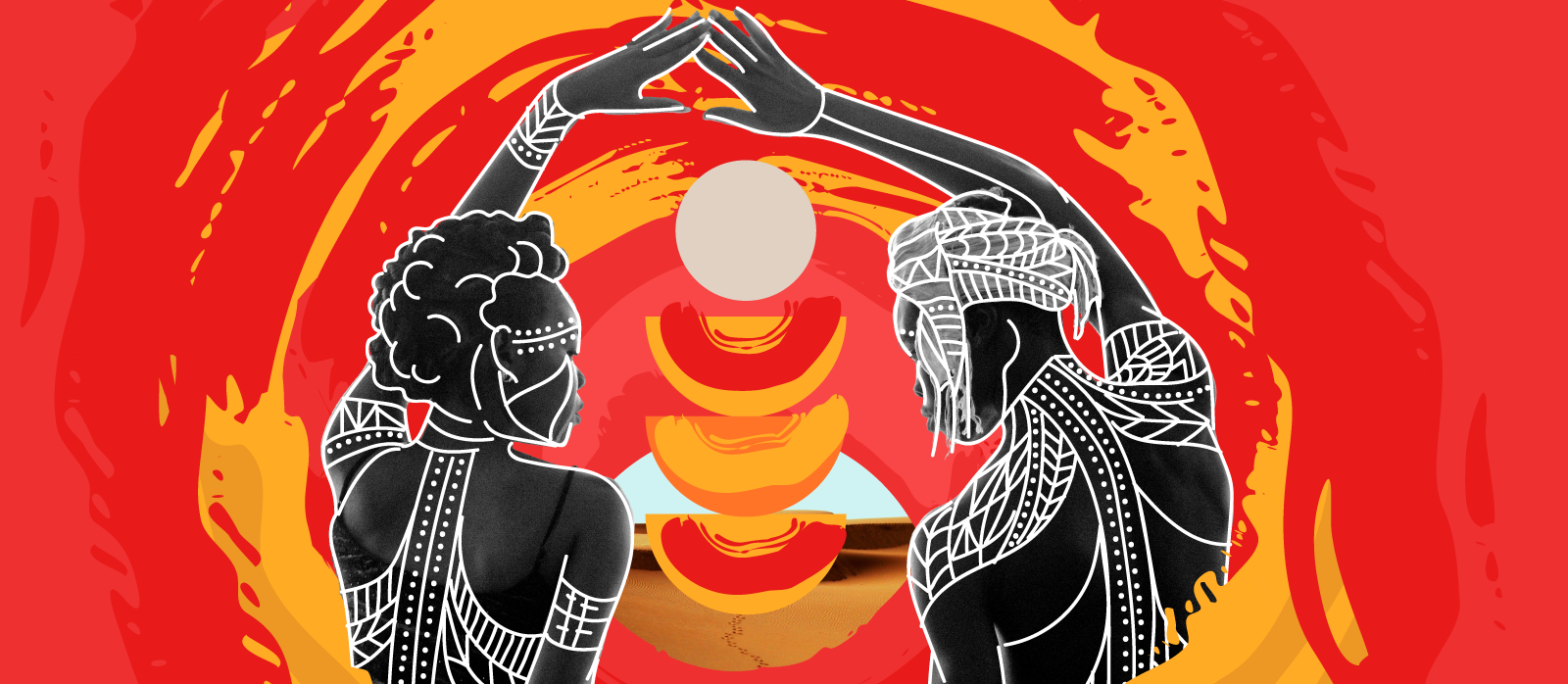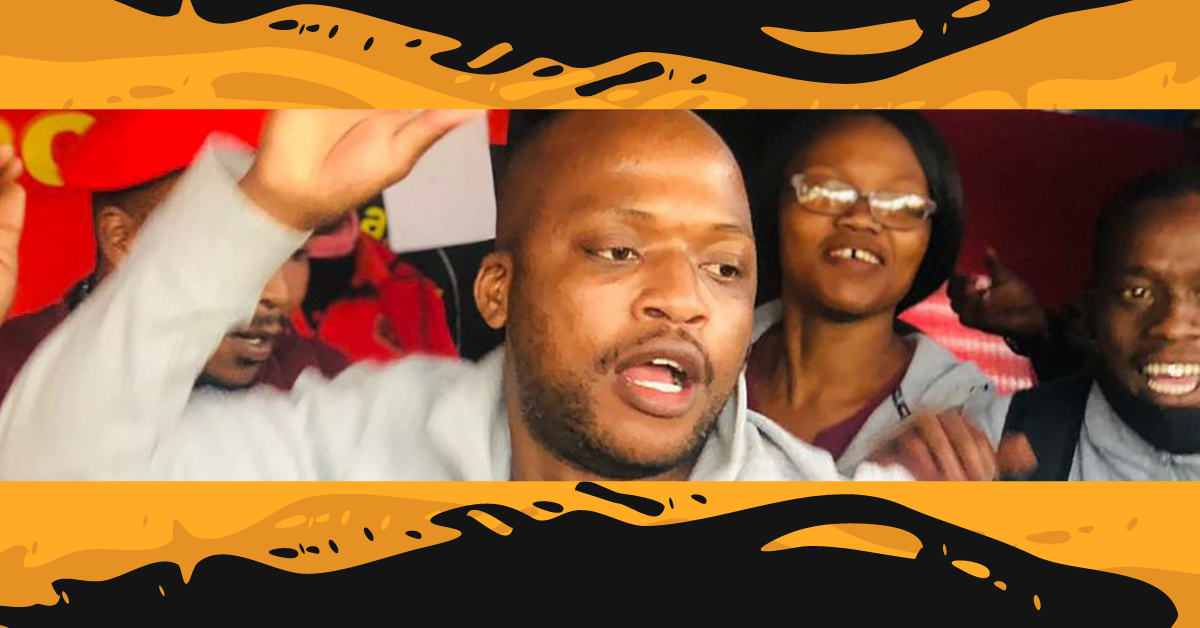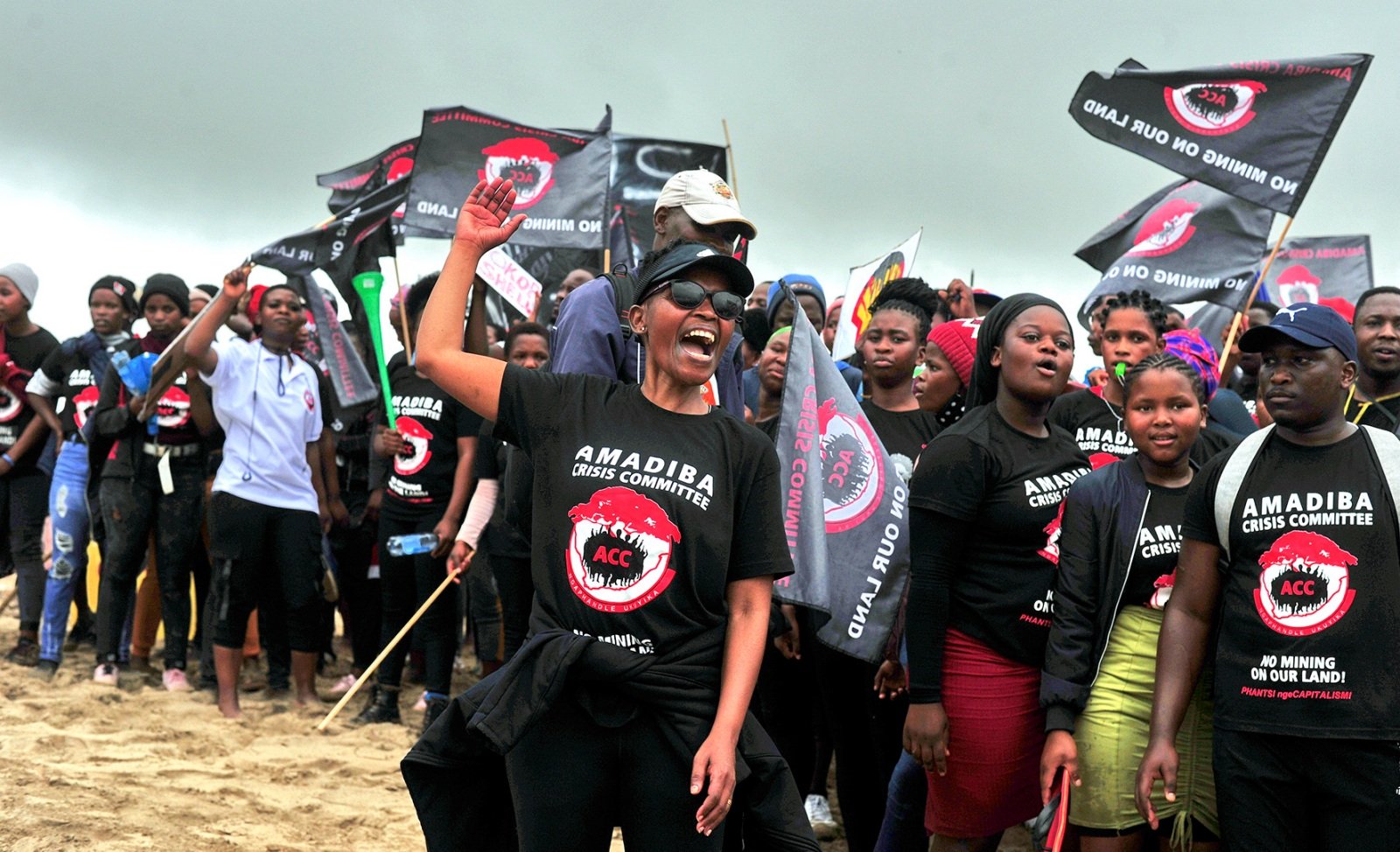Liberation: How to sustain the health of the land

On March 31st 2021, Africans in the Diaspora hosted our third event in the Chop It Up series ‘Food, Land and African Liberation.’ This piece by Sofía Garzón Valencia captures the dialogue that was held. Read the original version in Spanish here. Version original en español aquí.
To liberate ourselves, to balance the planet, to sustain a delicious life, to free ourselves from the manifestations of violent death imposed by policies that commodify the land, food and life in all its expressions – this was the essence of the conversation during ‘Food, Land and Liberation,’ the third session of the Chop It Up series.
Weaving together Pan-African perspectives, Nonhle Mbuthuma, Miriam Miranda and Mariama Sonko spoke about the experiences of the Amadiba Crisis Committee (ACC), the Organización Fraternal Negra Hondureña/OFRANEH and of Nous Sommes la Solution. Through their words Mariama, Nonhle, and Miriam placed within reach the realities that they are building to re-establish the dignity of life.
Nonhle Mbuthuma, who lives in the Eastern Cape, South Africa, opened up the conversation. For Nonhle the restoration of the dignity of life requires the collective exercise of the right to say NO! The communities in Xolobeni have been trying to resist the external instinct to displace since 2007. They are determined not to leave the graves of their ancestors behind. Nonhle shared that between 2015 and 2018, Transworld Energy and Mineral Resources, a mining company, wanted to exploit 900 hectares of land for open-pit titanium mining, as well as wanting to impose infrastructure projects designed to change how people would interact with the land and the community values that underpin the stewardship of the land. The ACC successfully used international and national law to stop their plans moving forward.
The ACC is still in court defending their right to their land as the judgement in their favor is being appealed. In an effort to justify the displacement of the Xolobeni communities, those pushing for the mining development say it would alleviate poverty. But for Nonhle and the community it didn’t make sense to say that; “we don’t understand when they say we are the poor of the poorest. because where we are living there is no hunger. We…have land and we use the land in a sustainable way [and that] feeds our children.”
Following Nonhle, Miriam Miranda shared stories of the Garifuna people, an Afro-Indigenous people whose population extends throughout Honduras, where Miriam is based, to other parts of Central America, Mexico and the United States. Miriam talked about how extractive policies have been implemented in the name of development and how organized crime has been used to expel entire communities. She agreed with Nonhle that the existing protections or legal tools do not translate into effective constitutional guarantees of rights and so are not enough. On the contrary they are part of a structure which dismantles communities and renders them precarious because short term solutions and needs are prioritized even if it means degrading the land and everything that sustains it.
In denouncing the toxic narratives that filter into communities Miriam pointed out that when progress and success are defined in individual terms the poisoning imposed by the use of pesticides and the instability of food prices, for example, can be justified. To resist this we must change, we must propose other instruments to measure development according to our own conceptions.
Defending the land can mean readdressing tenure rights. Defending the land can also mean using production methods that allow for the re-oxygenation of the soil and saving and using Indigenous seeds. Supporting food producers to continue moving towards ecological production methods that center the life of soil and water quality while sustaining and strengthening community ties is again a defence of the land.
Mariama Sonko, chairperson of Nous Sommes La Solution – a name meaning ‘we are the solution’ which could well function as a slogan of action of our entire diaspora – prompted us to remember that to create the future we must look back. The constellation of rural women’s associations across seven countries in west Africa who are members of Nous Sommes La Solution place the health of life at the center of their work. If we look back to what released the nutrition and flavors of traditional foods, we will realize that what allows the land and the body to be healthy is agroecological production.
To be able to practice agroecology there must be a liberation from an agroindustry that imposes chemical fertilizers, genetically modified seeds, monocultures, and exploitative leasing agreements that capture the land for decades. Caring for and defending the cultural aspects that inform what we put in our stomachs is also fundamental to environmental defense, food sovereignty and collective land rights. Mariama urged us to strengthen economies based on local knowledge and sustainable stewardship of the land by any means we can. To recover and promote this ancestral knowledge is to free ourselves from disease because those who have inherited this way of caring for the land from their elders, inherited health.
The collective experiences of Nonhle, Miriam, and Mariama, and all of their communities, in the defense of land, food, health and sovereignty have three things in common. Firstly, the awareness that the State has no interest in caring for or protecting our health. Secondly, the practice of defending land as a way of making life – taking it out of the neoliberal marketplace and putting its care at the center as part of the struggle for environmental justice and planetary survival. Finally that agroecological production, with modalities as ancient and diverse as humanity itself, the recovery of Indigenous seeds and the memory of our traditional practices surrounding eating are pillars that sustain identity and community self-determination. Liberation is dignity. To stay healthy, we need to know where the food, water, pill or antibiotic we consume comes from and how it was produced.
We can learn from this exchange that liberation begins in what we carry in our bellies.
Sofía is a Black woman, mother and neighbor and Pan-Africanist. She is a member of the Process of Black Communities and the Mobilization of Black Women for the Care of Life and ancestral territories. She is also the co-founder of the Colombian Association of Black Economists – Asomanocambiada.
Related Stories



